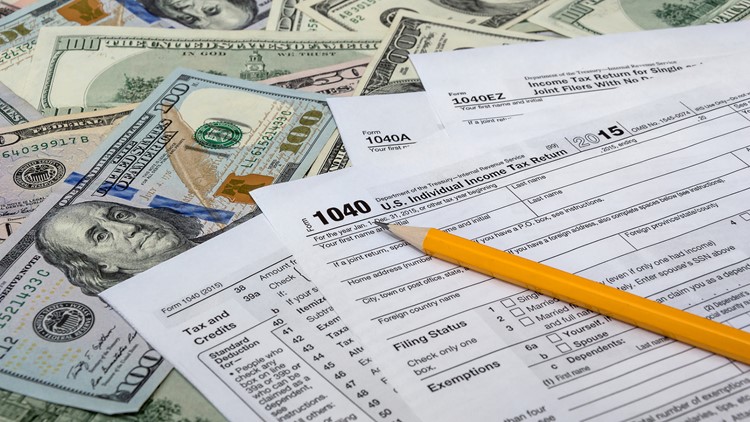QUESTION:
What’s the most secure way to file your taxes?
ANSWER:
Experts say e-file is the most secure way to do your taxes.
SOURCES:
IRS, Barbara Bass, certified public accountant at Gollob Morgan Peddy
PROCESS:
Creeping up on the tax deadline now and identity theft is always a big concern this time of year. A 2017 fraud study found more than 15 million people in the US had their identities stolen, so our Verify team set out to find what's safer when filing, online or by mail?
We first checked with the IRS who confirm most secure way to do your taxes and choosing e-file and direct deposit is the safest way to file an income tax return because e-file modern encryption technology to ensure and protect returns from fraud.
Barbara Bass, certified public accountant at Gollob Morgan Peddy PC says another advantage of filing electronically is preciseness. "Accuracy of filing online is considered to be substantially higher than just doing a paper filing. You're going to get errors if it's not done right," Barbara said.
And companies like H & R Block, give the option of having a tax professional review your return to avoid any mishaps online. With paper filing, you oversee every detail with no immediate tax help available.
So we verified when it comes to filing your taxes, online is the more secure route to go.
If you decide to go with a tax preparer, the IRS has some helpful tips to for your security. Make sure the person filing your taxes is available even AFTER the tax return is filed. Next, make sure they have an IRS Preparer Tax Identification Number. Paid tax return preparers must register with IRS and include PTIN on returns. And never use a preparer asking you to sign an incomplete tax form.
As April 17 approaches, remember if your taxes aren't filed, you face the threat of some pretty hefty penalties from the IRS. Within 5 months, you could end up with a 25% penalty, in addition to whatever tax you owed, plus interest on top of that.



